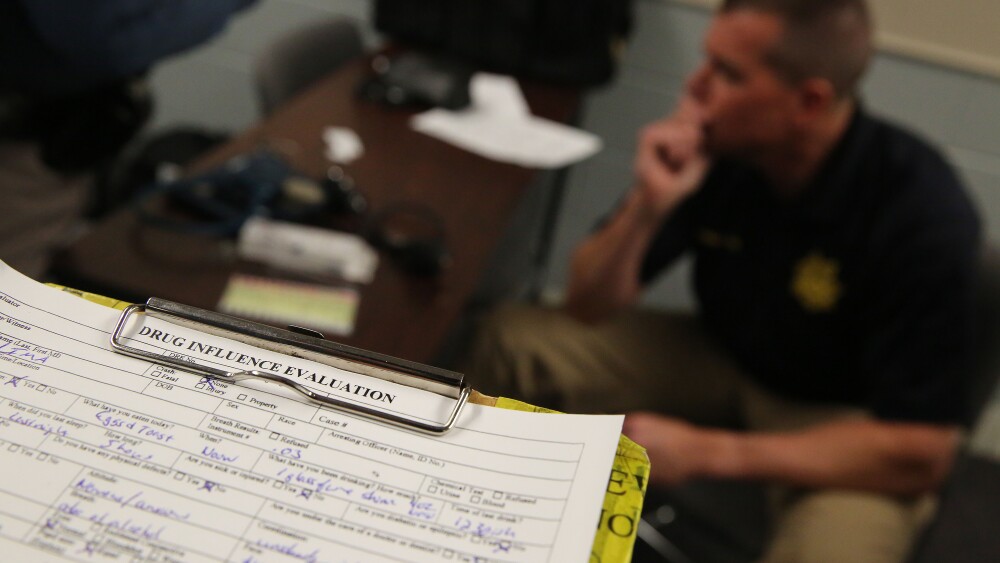Before the early 1980s, law enforcement used the third person when writing reports for investigations and record keeping. The third person is considered more formal and official. It seems to take the writer out of being directly involved in the story by converting the writer to just another player in the story.
One of the greatest influences on writing in the third person was the push for law enforcement to attend college and obtain degrees. If you have been to college, you may remember the numerous papers, reports and studies you were required to write. The required format for many college papers is third person.
Here are some examples of the third person:
- The below listed writer …
- The investigating officer …
- The responding officer …
- This writer …
Shift toward first person
In the 1980s, we started to change to writing in first person, where the investigators and officers (the report writers) refer to themselves as “I” instead of referring to another person. The purpose of the police report is to document the facts of a case — in other words, what happened. Using the first person makes your report clearer and easier to read.
Instead of “Officer Jones” where Officer Jones is the writer, write in the first person. Refer to yourself as I, me, my or to yourself and other officers as our, us, we or ours. It is much clearer and easier to understand. Here are some examples comparing first and third person — you can quickly see that the first person is more powerful.
Third Person:
The below listed officer responded to the house. The below listed officer approached the victim and asked what happened.
First Person:
I responded to the house. I approached the victim and asked what happened.
Third Person:
The responding officer interviewed the witnesses and took statements.
First Person:
I interviewed the witnesses and took statements.
Third Person:
This writer told the arrestee to put his hands behind his back. This writer handcuffed the arrestee.
First Person:
I told the arrestee to put his hands behind his back. I handcuffed the arrestee.
Third Person:
The below listed officer was approached by the prostitute.
First Person:
I was approached by the prostitute.
Using the third-person person to make your report sound more “official” is more confusing and harder to determine who is involved in the incident. Here are some sample paragraphs comparing the first and third person.
Third Person:
The responding officer, Officer Jones, and Officer Milton surrounded the house. The suspect exited via the front door in front of rthe esponding officer. Responding officer called Milton and Jones. Milton and Jones came up behind the suspect while the responding officer held a light on the suspect. At the signal of the responding officer, Milton and Jones grabbed the suspect from behind.
First Person:
I, Officer Horton, Officer Jones, and Officer Milton surrounded the house. The suspect exited via the front door in front of me. I called Milton and Jones. They came up behind the suspect, while I held a light on the suspect. At a signal from me, Milton and Jones grabbed the suspect from behind.
Don’t switch back and forth
As you can see in these examples, the first-person version is shorter and easier to understand than the third-person version. Sometimes writers change the term they use to refer to themselves when they use the third person or switch back and forth between first and third person. For example:
The writer referred to himself by the following terms: Responding officer, this writer, we, I, and arresting officer. The writer is trying to sound formal by using the third-person person to write this report. However, when the writer starts to describe the action, the third person begins to sound clumsy and is harder to use. To compensate, the writer jumps into first person to describe the action during the fight and then changes back to third person after the action is over. The result is a confusing report. It is not clear how many officers were involved and who was doing the writing. This confusion is good ammunition for the defense attorneys.
First Person:
As you can see, this version is much clearer and easier to understand.
Conclusion
Use the first person in your report writing. It is easier to write, takes less space and is easier to understand. In so doing, your investigation is more likely to end with a conviction.
This article, originally published June 30, 2016, has been updated with additional resources.
















